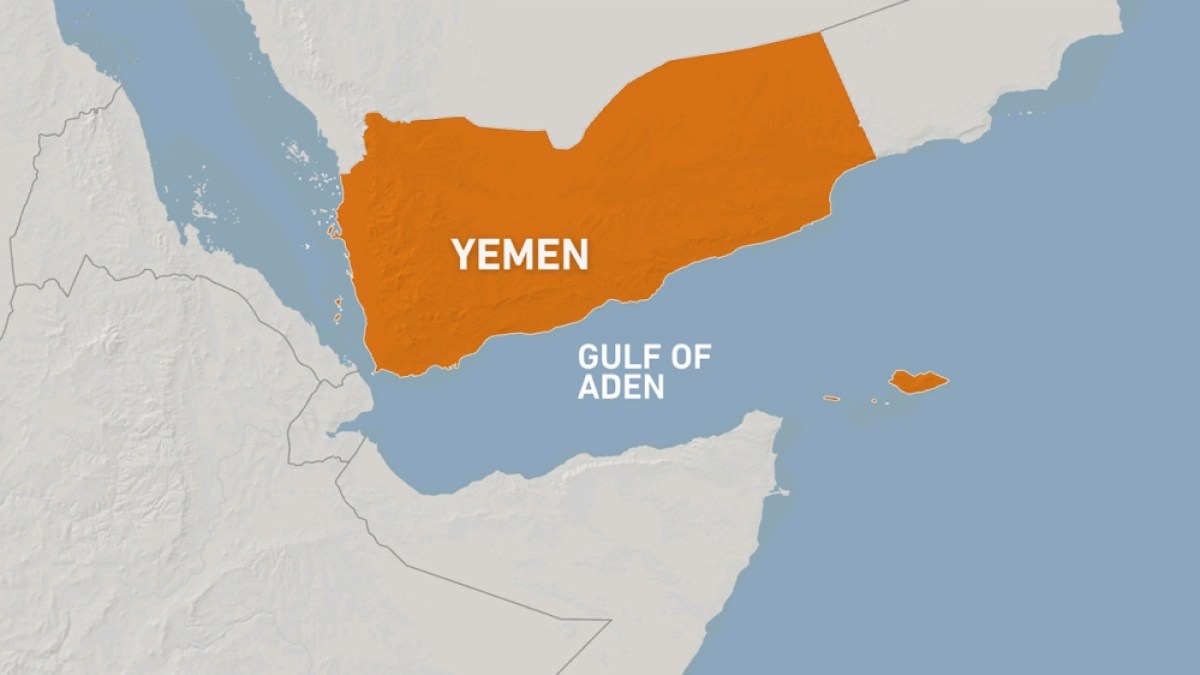My sister was standing with a few other students under the dim glow of Harvard Yard’s old lampposts, casually smoking and chatting. “Oh, you’re Palestinian?” one of them asked as he leaned in to light his cigarette from hers. “My cousin is in the IDF [Israeli army].”
Then he placed the cigarette in his mouth backwards, the lit end burning between his teeth. “This is how my cousin smoked while shooting Palestinians at the border,” he said. “So those idiots couldn’t see the flame.”
That evening, shaken, my sister called our parents and later reported the incident to her resident tutor. She searched for a way to file a formal complaint but found none. Arabs weren’t considered a “protected class”. In the charged political climate of late 2001, hate speech like this wasn’t just tolerated – it was invisible.
More than two decades later, little has changed. A report released in April 2025 by the Harvard Presidential Task Force on Combating Anti-Muslim, Anti-Arab, and Anti-Palestinian Bias described a “deep-seated sense of fear” among Muslim and Arab students, faculty and staff. The campus climate, the report noted, was marked by “uncertainty, abandonment, threat, and isolation”. Nearly half of Muslim students surveyed said they felt physically unsafe at Harvard while an overwhelming 92 percent of all Muslim students, faculty and staff revealed that they feared professional or academic consequences for expressing their personal or political views.
Harvard has fashioned itself as a free-speech warrior on the national stage for refusing to negotiate with the Trump administration on its sweeping demands for the university to drop its diversity, equity and inclusion measures and punish student protesters.
However, inside Harvard’s campus walls, we have seen President Alan Garber oversee a systematic erasure of teaching, research and scholarship about Palestine, at a time when more than 51,000 Palestinians have been killed, and hundreds of thousands more have been forcefully displaced and are facing starvation under a relentless Israeli siege. Long before Harvard evaded a hostile takeover from our billionaire president, it capitulated to the demands of its billionaire donors in matters of student discipline, campus speech and academic freedom.
To please its right-wing donors, Harvard adopted a one-sided conceptualisation of campus safety, in which speaking up against Israeli state violence towards Palestinians is considered threatening. As a result, university administrators rush to address anti-Semitism on campus, as they should, but they also censor and eliminate speech and scholarship which is critical of Israel in the name of fighting antisemitism. Meanwhile, anti-Palestinian, anti-Arab racism, and Islamophobia are less than an afterthought. University administrators remain silent as students, faculty and staff experience doxxing, harassment and death threats for speaking up about Palestinian human rights. They have shared international students’ information with the Department of Homeland Security, as students on nearby campuses have been abducted by masked Immigration and Customs Enforcement (ICE) officers, detained and deported for objecting to Israel’s international law violations.
Beyond turning a blind eye to intimidation and abuse, the university’s leaders also routinely take action to erase Palestinian speech, scholarship, advocacy and views.
Last year, the Harvard Corporation, the university’s unelected governing body, overruled the faculty and barred 13 seniors from graduating for protesting the genocide in Gaza, breaking with decades of disciplinary precedent. The university has banned the only undergraduate Palestine advocacy group twice, through inconsistent enforcement of the university’s ambiguous and “ever-evolving” event co-sponsorship policy, which, the American Civil Liberties Union (ACLU) warned, “raise[s] the specter of viewpoint discrimination”. In a little-publicised Title VI settlement from January, the US Department of Education found that Harvard failed to meaningfully investigate or sufficiently respond to 125 cases of discrimination and harassment reported through its anonymous reporting hotline, particularly those “based on Palestinian, Arab, and/or Muslim shared ancestry”. Although President Garber has said Harvard should condemn “hateful speech” under the institutional voice policy, this did not apply to the gruesome “jokes” former Prime Minister Naftali Bennett made about giving students exploding pagers for interrupting his speech at Harvard Business School in March 2025.
The handful of teaching and research programs where faculty study Palestine at Harvard have been censored, eliminated, or are under threat of elimination. In a matter of months, Harvard cancelled a panel featuring Palestinian children from Gaza at Harvard Medical School, ended its only partnership with a Palestinian university, and eliminated the Religion and Public Life program at the Harvard Divinity School, which addressed Israel/Palestine as a case study. Harvard also dismissed the leadership of the Center for Middle East Studies, as an “offering of sorts to its critics”, according to The New York Times.
The elimination of Harvard programmes about Palestine is especially chilling given that all of Gaza’s universities have been demolished, more than 80 percent of its schools have been destroyed or damaged, and professors, teachers and students in Gaza have been systematically attacked. The UN calls this “scholasticide” – the systemic obliteration of education through the destruction of educational infrastructure and arrest, detention, or killing of students, staff, and teachers.
The erasure and elimination of knowledge production by Palestinians and about Palestine at Harvard and other universities chills speech in defence of Palestinian human rights in the US, and thus materially affects the safety of Palestinians in Gaza and the West Bank.
At this time last year, campuses across the US experienced an unprecedented mobilisation in support of Palestinian freedom, which put a spotlight on the overwhelming public opposition to Israel’s assault on Gaza. Eventually, the opposition to Israel’s conduct against Palestinians became so vocal that then-President Joe Biden – an ardent supporter of Israel – threatened an arms embargo against Israel if the humanitarian situation in Gaza did not improve.
Today, after Harvard and other universities suppressed protests against Israel’s total war on Gaza, Palestinian suffering and death are met with growing silence in the US. As public and media attention drifts away from Gaza, the pressure on American leaders to intervene – or even acknowledge the scale of the crisis – has all but disappeared.
The United Nations Office for the Coordination of Humanitarian Affairs (OCHA) recently declared that “the humanitarian situation in Gaza is now likely the worst it has been in the 18 months since the outbreak of hostilities.” Jonathan Whittall, the local head of OCHA, stressed that what’s unfolding in Gaza no longer resembles conventional warfare. “People in Gaza are telling me they feel like it’s the deliberate dismantling of Palestinian life in plain sight,” he said. Malnutrition is surging as Israel has sealed the borders to food, medicine, and all humanitarian aid for over two months. Meanwhile, scenes that should shock the world – children’s bodies thrown into the air by explosions, families burned alive – have become what Whittall called “everyday atrocities”.
Both the Trump administration and Harvard’s billionaire donors clearly understand the important role universities play in shaping US society and public opinion. As Harvard leaders proclaim their commitment to “viewpoint diversity”, we can rest assured that we will hear more from speakers like Jared Kushner, who spoke at the Harvard Kennedy School last year about his plan to “finish the job” and develop Gaza’s “valuable waterfront property”, instead of Palestinian child amputees whose plight might make us feel uncomfortable or complicit.
It is heartening that hundreds of university presidents signed a letter opposing President Trump’s attempted takeover of US higher education. But for decades, their institutions have eagerly bent to the will of billionaire donors. In just the past year and a half, these donors have shaped everything from campus speech to student discipline – even course syllabi. In this corrupt bargain, the concept of “campus safety” has been weaponised to suppress speech on what the UN and other human rights organisations have called genocide. The language of anti-discrimination has been twisted to dismantle diversity, equity, and inclusion programs – Harvard’s own DEI office now quietly renamed the “Office of Community and Campus Life”.
This moment cannot be separated from a broader history. It echoes the 1971 Lewis Powell memo, which outlined how corporations could infiltrate US institutions – especially universities – to align them with corporate interests. Today, the “Palestine exception” has become a key entry point for an ideological capture of higher education, decades in the making.
For Harvard and its peers to resist federal overreach while yielding to oligarchic donors is not resistance at all – it’s surrender. If we don’t fight both forces together, we may soon be unable to fight at all. If, as President Garber wrote, “the fearless and unfettered pursuit of truth liberates humanity,” then he – and all of us – must demand that liberation without exceptions, caveats, or fear. For every single one of us.
The views expressed in this article are the author’s own and do not necessarily reflect Al Jazeera’s editorial stance.

 3 months ago
89
3 months ago
89

















































